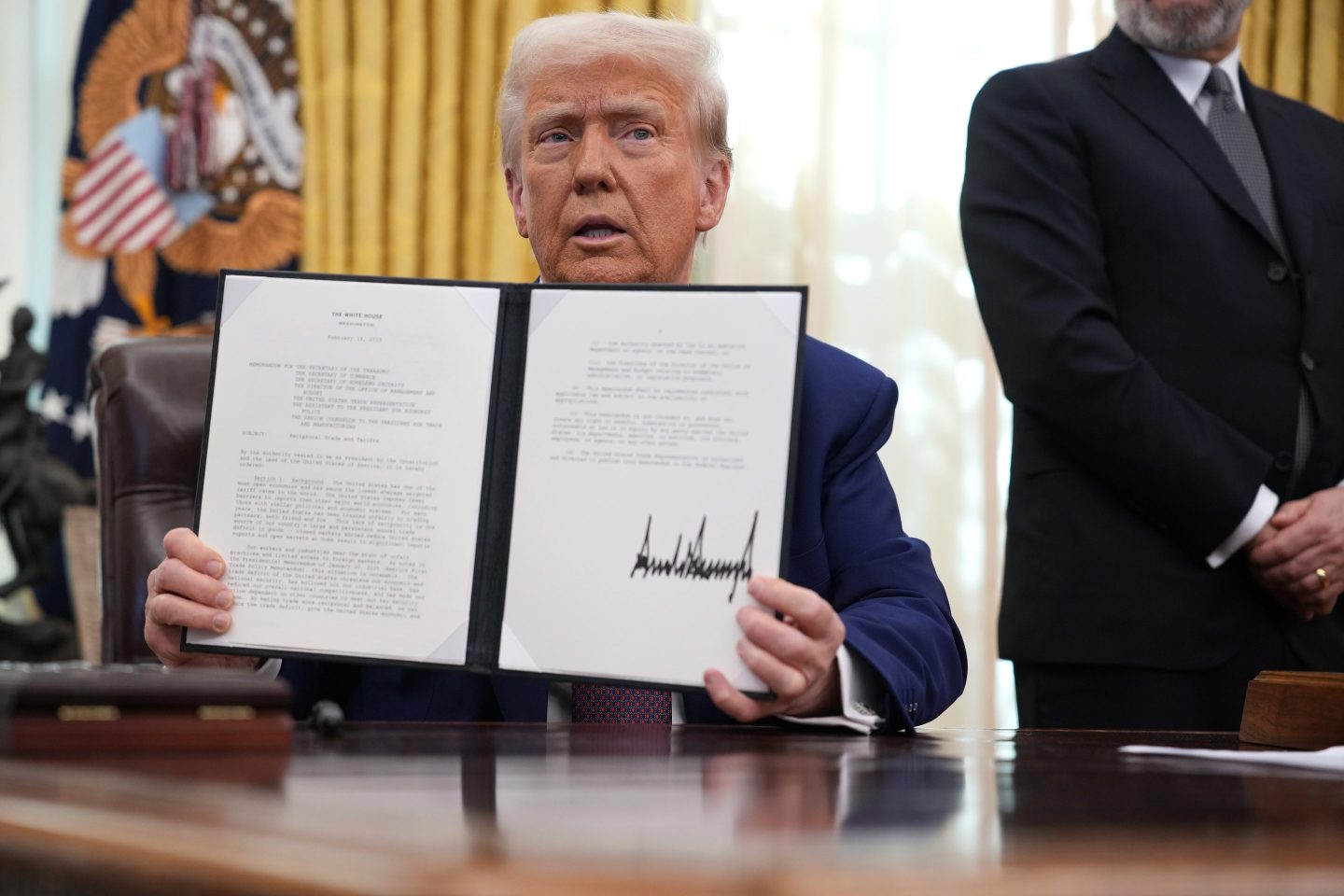- Trump’s 25% tariffs on Canada and Mexico are threatening to make a trip to the grocery store more expensive by hiking the prices of avocados, strawberries, and maple syrup. Buying a new car or phone could also get pricier because entire products or their components are manufactured abroad.
Trump’s tariffs on Canada and Mexico could make everyday necessities like cars and groceries more expensive for the average person.
On Tuesday, President Trump implemented major tariffs on the country’s biggest trading partners, including 25% tariffs on imports from Canada and Mexico along with an additional 10% tariff on China. The U.S. imported the highest value of goods from Mexico in 2024 ($510 billion), followed by China ($463 billion) and Canada ($421 billion), according to the United Nations COMTRADE database on international trade.
By targeting the country’s three most critical trading partners, economists broadly agree that Americans will have to pay more for everyday products. Here are some of the items that could be most impacted by Trump tariffs.
Grocery products
The tariffs targeting Mexico, in particular, could hike the prices of fruits and vegetables over the next several days, according to Target CEO Brian Cornell. Strawberries and bananas could be especially hit, he said. The U.S. imported $228 billion worth of bananas from Mexico in 2023, making it the 5th biggest supplier of the fruit to the U.S. It also imported more than $1 billion worth of strawberries from Mexico in 2023, more than any other country.
Avocados may be the most important produce item to see price hikes. Although other countries such as Peru, Colombia, and the Dominican Republic cultivate avocados, no country produces more than Mexico.
In 2024, the U.S. imported $2.7 billion worth of avocados, or about 90% of its supply, from Mexico. Domestically, California accounts for the biggest chunk of avocado production, but acreage dedicated to the crop as well as its yield has been declining since at least the 2010s, according to the California Avocado Commission.
Canada, for its part, is the biggest U.S. supplier of maple syrup, although the U.S. produces some syrup domestically. The U.S. imported $376 million worth of maple syrup from Canada in 2023, which amounted to more than three-fifths of Canada’s production, according to the Canadian government.
Cars
Several U.S. auto manufacturers have for years expanded the production and the supply chain for components for some vehicles to Mexico. As a result, an analysis from automotive consultant Anderson Economic Group claims the sticker price of a new vehicle could skyrocket by as much as $12,000 due to Trump’s tariffs.
More specifically, the price of a large SUV with “significant” content from Mexico could rise by $9,000, while the price of a similar pickup truck could tick up $8,000. Consumers may also find that automakers stop producing some of the most impacted vehicles, the report claimed.
Among U.S. automakers, Ford builds its small Maverick pickup truck, the Bronco Sport Compact SUV, and the electric Mustang Mach-e in Mexico, according to Bloomberg. General Motors builds some of its Chevrolet Silverado trucks in Mexico as well.
Oil and plastics
Energy-related imports from Canada were hit with a lesser, but still significant, tariff of 10% Tuesday, and experts claim that the tariff hit on crude oil could translate to higher gas prices.
While the U.S. is the world’s biggest natural gas and crude oil exporter, Canada is the biggest supplier of crude oil to the U.S, by far. The second-biggest supplier is Mexico, which is also affected by tariffs.
Canadian oil is heavier than much of the oil extracted in the U.S. and is more well suited for American refineries than the lighter oil produced domestically, according to the Associated Press. As of December about 4.2 million barrels of crude oil, equivalent to more than 267 olympic-sized swimming pools, were imported each day from Canada.
Computers and toys
The 10% additional tariffs imposed on China by President Trump are “roughly twice as large as the increase over the entire first Trump administration,” according to a Tuesday note by Goldman Sachs. As such, the tariff hike is bad news for consumers looking to buy electronics or toys.
Many of the smartphones used by U.S. consumers are made in China. As of 2020, seven of 10 smartphones in the U.S. were produced in China, according to research firm Canalys. Although smartphones were largely exempt from tariffs during the first Trump administration, the president has given no indication that they will be this time.
Although the biggest smartphone maker, Apple, has scaled back its production in China in recent years, much of the company’s iPhone production remains in the country.
More than 80% of toys imported to the U.S. are made in China, according to industry group the Toy Association. Jay Foreman, the CEO of Tonka Truck maker Basic Fun, told the Washington Post that the price of its Tonka Classic Steel Mighty Dump Truck could rise to as much as $39.99 from $29.99 because of tariffs on China.













